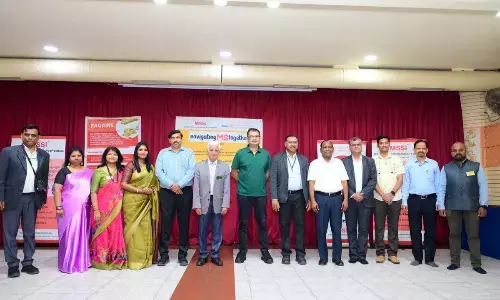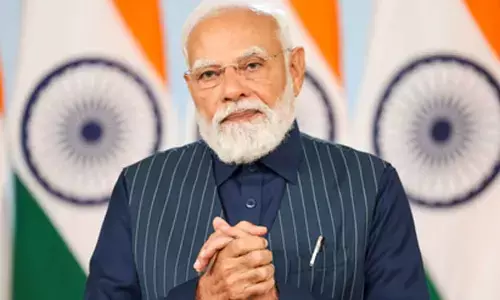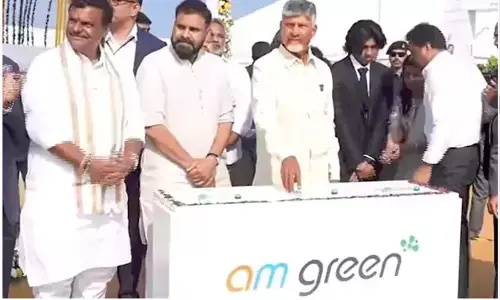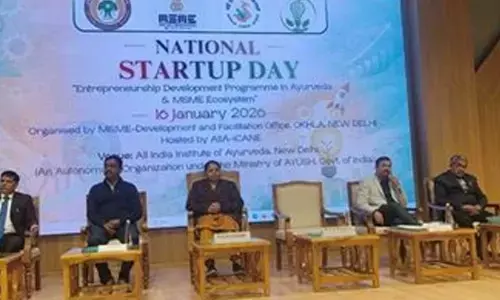1.99L cases registered for drug trafficking between 2017-19
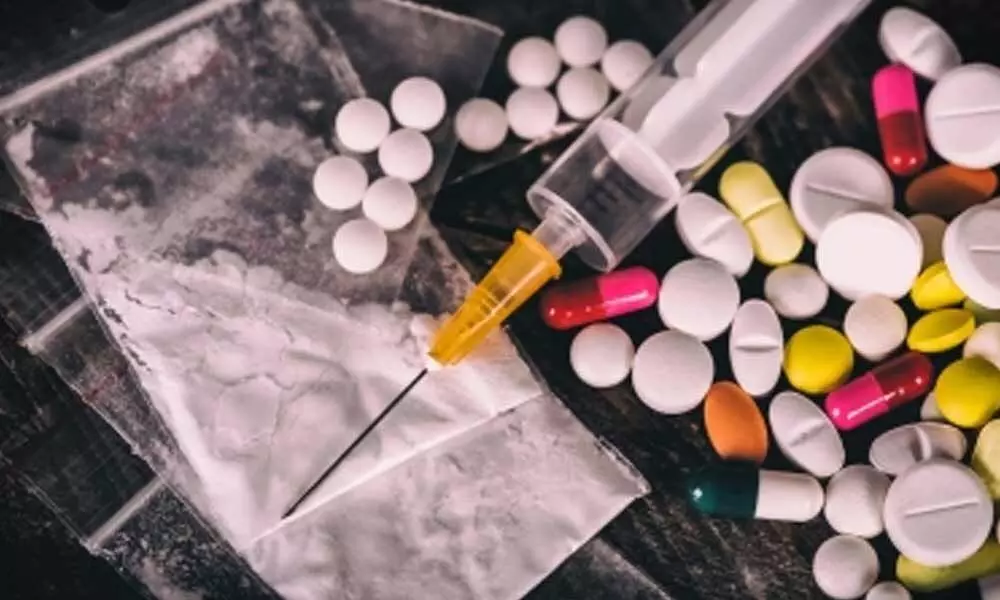
For representational purpose (Photo/IANS)
The government on Tuesday said that the Narcotics Control Bureau (NCB) registered 1,99,716 cases related to drugs trafficking between 2017 and 2019.
New Delhi: The government on Tuesday said that the Narcotics Control Bureau (NCB) registered 1,99,716 cases related to drugs trafficking between 2017 and 2019.
In a reply to an unstarred question in the Lok Sabha, Minister of State for Home Affairs Nityanand Rai said, "Sharp vigil, effective surveillance, public cooperation, source-based intelligence, sensitisation of field officials for better enforcement etc have resulted in gradual increase in registration of number of drug trafficking related cases in the country."
He said that the National Crime Records Bureau (NCRB) is the central agency, which compiles the data on crimes, as reported by States and Union Territories, and publishes the same in its annual publication "Crime in India".
Rai said that the latest published report is of the year 2019.
"The State/UT-wise details of cases registered under the Narcotics Drugs and Psychotropic Substance (NDPS) Act-1985 for the year -- 2017, 2018 and 2019 is 63,800, 63,137 and 72,779 respectively," Rai said.
The question was asked by Lok Sabha MP K. Muraleedharan.
The Minister said that the government has taken various steps for the prevention of drug trafficking in the country.
He said for coordination among various Central and State agencies, the Narco Coordination Centre (NCORD) mechanism was set up by Ministry of Home Affairs (MHA) in the year 2016 for effective Drug Law Enforcement.
"This NCORD system has been restructured into a four tier scheme up to district level by MHA on July 29, 2019 for better coordination. For monitoring the investigation of large seizure cases, a Joint Coordination Committee (JCC) with Director General (DG), NCB as its Chairman was set up by the government on July 19, 2019," he said.
He also said that for digitisation of pan-India drug seizure data, MHA has launched an e-portal called "SIMS" (Seizure Information Management System) in the year 2019 for all the drug law enforcement agencies under the mandate of Narcotics Drugs and Psychotropic Substances Act, 1985.
He said that financial assistance under the scheme "Assistance to States for Narcotics Control" is provided by MHA to eligible States for strengthening their narcotic units.
Rai also said that Border Security Force (BSF), Sashastra Seema Bal (SSB), Indian Coast Guard, Railway Protection Force and National Investigation Agency (NIA) have been empowered under the NDPSA Act for making interdiction of narcotic drugs in remotest and far flung areas of the country.
"Illicit cultivation is addressed through use of satellite imagery and subsequent destruction of such crops in coordination with States," he said.
He further said that as a part of International co-operation, India has signed "26 Bilateral Agreements, 15A Memoranda of Understanding and two Agreements on Security Cooperation with different countries for combating illicit trafficking of NDPS and Chemical Precursors as well as related offences".
"NCB also co-ordinates with various international organisations such as SAARC Drug Offences Monitoring Desk (SDOMD), Brazil, Russia, India, China and South Africa (BRICS), Colombo Plan, Association of Southeast Asian Nations (ASEAN), ASEAN Senior Officials on Drug Matters (ASOD), Bay of Bengal Initiative For Multi-Sectoral Technical and Economic Co-Operation (BIMSTEC), United Nations Office on Drugs and Crime (UNODC), International Narcotics Control Board (INCB) etc for sharing information and intelligence to combat transnational drug trafficking," he added.









